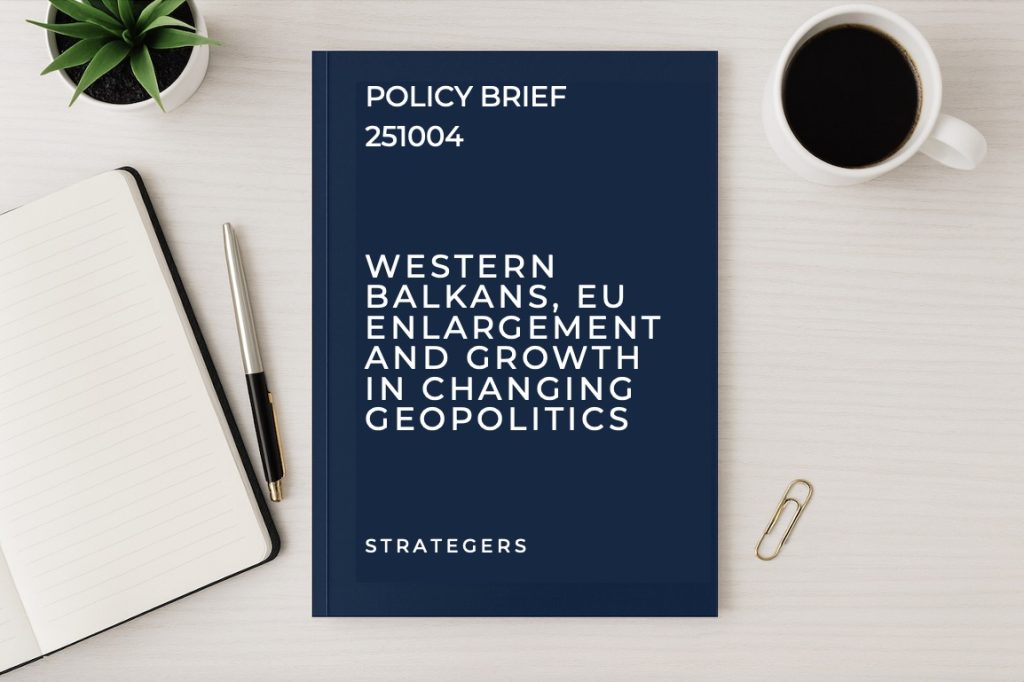Western Balkans, EU Enlargement and Growth in Changing Geopolitics
Policy Brief, Square October 4, 2025
Two decades after the Thessaloniki Summit, EU enlargement for the Western Balkans remains incomplete but increasingly strategic. In a time of geopolitical fragmentation, energy insecurity, and economic uncertainty, integration is no longer just a political aspiration—it is essential for Europe’s competitiveness and stability.
The region still faces major challenges: weak institutional capacity, fragmented policymaking, under-utilized EU funds, and limited coordination across governments. Education systems remain misaligned with labor market needs, driving youth emigration and constraining growth. Delayed accession has imposed a significant economic cost, with regional GDP per capita estimated to be one-third lower than it could have been.
Strategers Policy Brief calls for renewed reform momentum through:
Strengthening institutional capacity and professionalizing public administration;
Modernizing education and vocational systems to boost human capital;
Fully utilizing EU instruments such as IPA III, WBIF, and the Reform and Growth Facility;
Deepening regional cooperation via CEFTA and the Common Regional Market 2025–2028;
Institutionalizing evidence-based policy through cooperation among government, academia, and think tanks.
EU integration remains the region’s path to modernization, requiring strategic acceleration—not incremental adjustment.
- By Strategers

